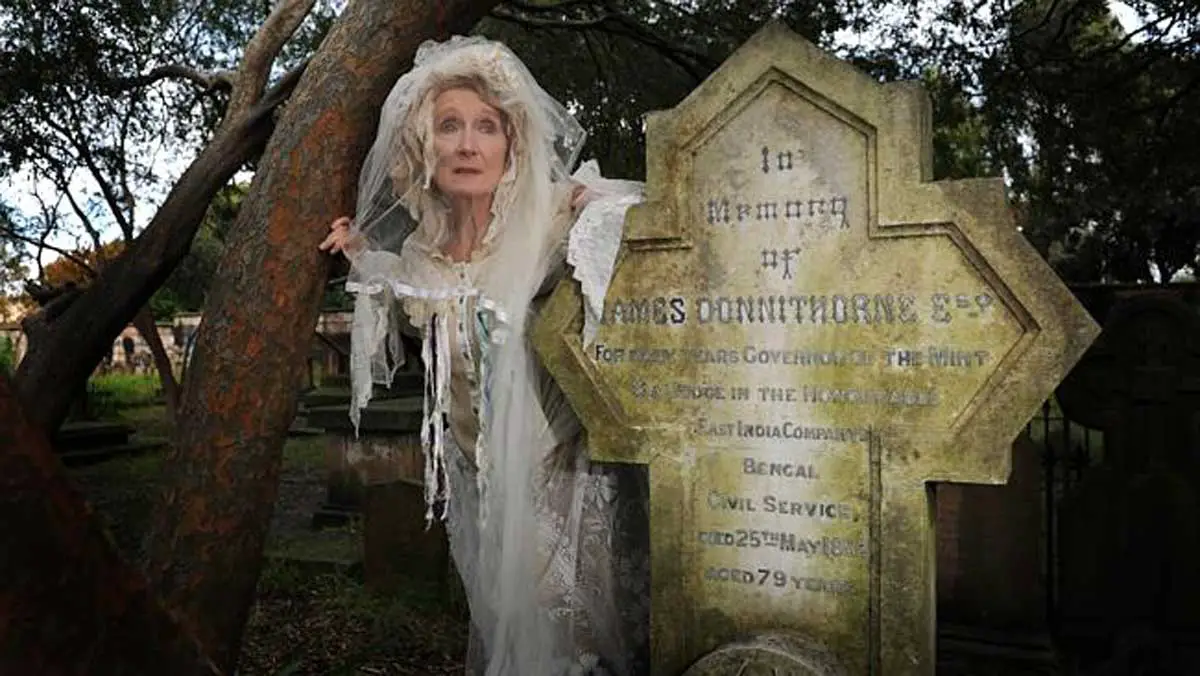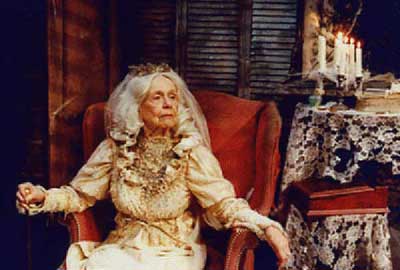Charles Dickens is believed to have used the sad story of used this sad story of Eliza Emily Donnithorne, a 19th century recluse of the Sydney suburb of camperdown, as the inspiration for Miss Havisham of his classic novel, Great Expectations, which was published during the latter years of Eliza’s life. It is speculated that Dickens heard the story of Eliza through his friendship with Caroline Chisholm, his personal friend who was a neighbour of the Donnithornes.
In I836 former East India Company Judge & Master of the Mint, James Donnithorne (1773-1852), retired to the Sydney township of Newtown with his ten year old daughter Eliza Emily. He purchased Camperdown Lodge, a georgian villa situated on King Street and named in honour of Lord Nelson’s Napoleonic naval victory. Donnithorne was an industrious man, an empire builder who invested extensively in real estate in Victoria, South Australia and New South Wales with great success.
Eliza Emily was the sole surviving female of the Donnithorne family after an outbreak of cholera in Calcutta in 1832 first claimed the lives of her two teenage sisters and then her distraught mother, Sarah, whose epitaph in Kedgeree Cemetery noted her cause of death as “a broken heart”. Between 1845 to 1848 Mr Donnithorne attempted to arrange marriages between his daughter and the sons of former East India Company colleagues in India, however Eliza showed the same stubbornness he was renowned for by rejecting any suggestion of an arranged marriage, proudly stating she would only marry someone she loved and no one else.
Her refusal to submit to the demands of her father led to intense friction between them, often going for days without speaking. She sought refuge at St Stephen’s Anglican Church in Newtown and it was here Eliza met a young Englishman, George Cuthbertson, a shipping company clerk who pursued her and quickly captured her affections. The class divide forced their relationship to be carried out in secret, with clandestine meetings and stolen moments in the pastures of Camperdown Cemetery.
As Eliza continued spending more time away from home her father became concerned and on becoming aware of the relationship between the young couple irrupted, infuriated he forbade his daughter to ever see her unworthy suitor again. But his ultimatum fell upon deaf ears and whenever he departed on business Eliza would send one of the trusted servants with a message to Mr Cuthbertson, announcing their opportunity for a romantic rendezvous. George would then ride out on horseback to Camperdown Lodge, was seen riding into Newtown like an American cowboy, where the couple would spend as much time as possible together.
Mr Donnithorne was known in business circles for his quick temper, the fuse of which drew shorter with each passing year and declining health. One day when he was making his way from the stables to Camperdown Lodge he spotted George peering through a window looking for his daughter, and soon fled hotly pursued by the father in a violent rage. A direct result of this encounter was that more restrictions were placed on Eliza who had to resort to climbing out her bedroom window to exchange a kiss or two with George.
Perhaps realising his attempts to stop the pair from seeing each other were futile, or maybe with another more sinister notion in mind, Mr Donnithorne surprisingly gave his consent for them to court freely. He told friends that the elimination of romantic intrigue would make Eliza see how unsuited George was for her. It had the opposite effect and led to a proposal of marriage, an outcome he had not expected. Donnithorne demanded George resign his job and live off an allowance with Eliza at Camperdown Lodge after the wedding.
On the wedding day, a steady stream of onlookers crowded King Street, Newtown, eager to catch a glimpse of the wedding party in what was very much a high society wedding. The appointed hour of George’s arrival came and went; time passed, but still no sign of the groom. The guests dispersed and Eliza remained in an emotional state for several weeks, demanding that the wedding finery be left untouched including the wedding feast on the table.
In I836 former East India Company Judge & Master of the Mint, James Donnithorne (1773-1852), retired to the Sydney township of Newtown with his ten year old daughter Eliza Emily. He purchased Camperdown Lodge, a georgian villa situated on King Street and named in honour of Lord Nelson’s Napoleonic naval victory. Donnithorne was an industrious man, an empire builder who invested extensively in real estate in Victoria, South Australia and New South Wales with great success.
Eliza Emily was the sole surviving female of the Donnithorne family after an outbreak of cholera in Calcutta in 1832 first claimed the lives of her two teenage sisters and then her distraught mother, Sarah, whose epitaph in Kedgeree Cemetery noted her cause of death as “a broken heart”. Between 1845 to 1848 Mr Donnithorne attempted to arrange marriages between his daughter and the sons of former East India Company colleagues in India, however Eliza showed the same stubbornness he was renowned for by rejecting any suggestion of an arranged marriage, proudly stating she would only marry someone she loved and no one else.
Her refusal to submit to the demands of her father led to intense friction between them, often going for days without speaking. She sought refuge at St Stephen’s Anglican Church in Newtown and it was here Eliza met a young Englishman, George Cuthbertson, a shipping company clerk who pursued her and quickly captured her affections. The class divide forced their relationship to be carried out in secret, with clandestine meetings and stolen moments in the pastures of Camperdown Cemetery.
As Eliza continued spending more time away from home her father became concerned and on becoming aware of the relationship between the young couple irrupted, infuriated he forbade his daughter to ever see her unworthy suitor again. But his ultimatum fell upon deaf ears and whenever he departed on business Eliza would send one of the trusted servants with a message to Mr Cuthbertson, announcing their opportunity for a romantic rendezvous. George would then ride out on horseback to Camperdown Lodge, was seen riding into Newtown like an American cowboy, where the couple would spend as much time as possible together.
Mr Donnithorne was known in business circles for his quick temper, the fuse of which drew shorter with each passing year and declining health. One day when he was making his way from the stables to Camperdown Lodge he spotted George peering through a window looking for his daughter, and soon fled hotly pursued by the father in a violent rage. A direct result of this encounter was that more restrictions were placed on Eliza who had to resort to climbing out her bedroom window to exchange a kiss or two with George.
Perhaps realising his attempts to stop the pair from seeing each other were futile, or maybe with another more sinister notion in mind, Mr Donnithorne surprisingly gave his consent for them to court freely. He told friends that the elimination of romantic intrigue would make Eliza see how unsuited George was for her. It had the opposite effect and led to a proposal of marriage, an outcome he had not expected. Donnithorne demanded George resign his job and live off an allowance with Eliza at Camperdown Lodge after the wedding.
On the wedding day, a steady stream of onlookers crowded King Street, Newtown, eager to catch a glimpse of the wedding party in what was very much a high society wedding. The appointed hour of George’s arrival came and went; time passed, but still no sign of the groom. The guests dispersed and Eliza remained in an emotional state for several weeks, demanding that the wedding finery be left untouched including the wedding feast on the table.










